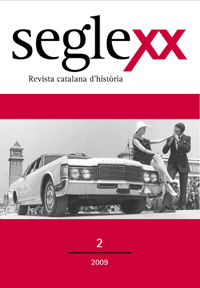Fites d’una història d’intel·lectuals
Keywords:
Intellectuals, culture, liberal revolution, public opinion, pressAbstract
Since Zola turned to a newspaper and Weber asked his listeners to imagine a world without newspapers, the fate of the intellectual and traits that defi ne him would be linked to his ability to make an impact and gain publicity using the press,a historically privileged place in the public presence of the intellectual. The fi gure of the great intellectual that emerged at the end of the nineteenth century was made possible because the people of the liberal revolutions became the masses, which had just started to read. This was a time when entering higher education institutions was reserved for a tiny minority, while beneath them were the masses that wanted to read but still lacked a public voice, in contrast to the minority that knew how
to write and did not stop talking. However, the protests of the Spanish intellectuals were born in the twentieth century. Here is a historical journey about the changing attitudes and roles of the group of intellectuals from the era of the emergence
of this figure to the present day. It finishes by reflecting upon what happened to this creature, which emerged with its own name in the late nineteenth century, while in the late twentieth century there has been endless talk about the silence and the
end of intellectuals.
Downloads
Downloads
How to Cite
Issue
Section
License
The author who publishes in this journal agrees to the following terms:
a. The author exclusively assigns all intellectual property rights to the publisher worldwide and for the entire duration of the applicable intellectual property rights.
b. The publisher will distribute the texts under the Attribution-NonCommercial-NoDerivs 4.0 International, which allows the work to be shared with third parties, as long as they acknowledge the authorship, the initial publication in this magazine and the conditions of the license.











